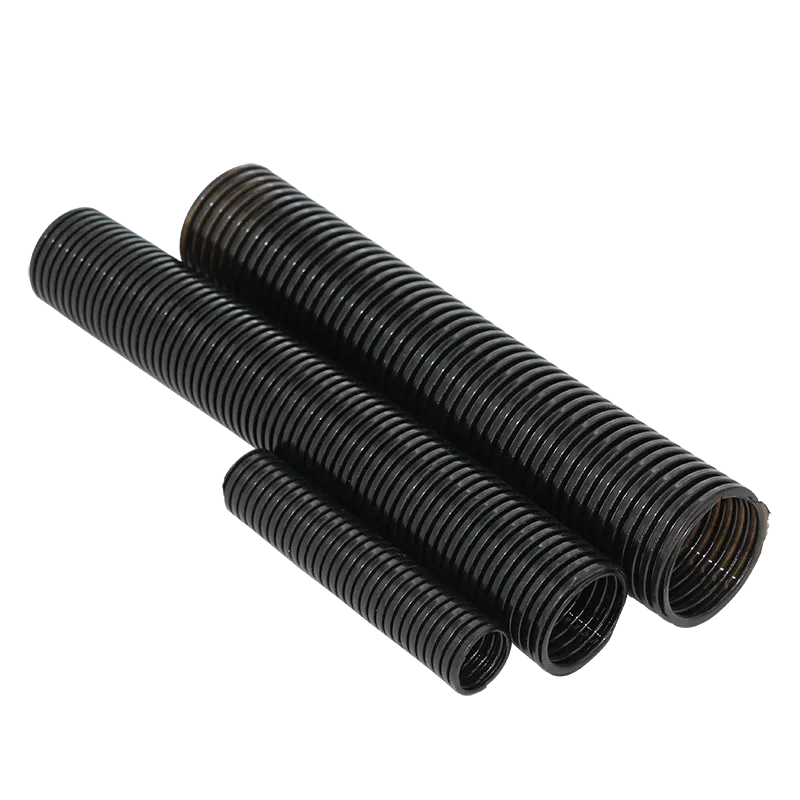Flexible Tubing Solutions for Efficient Cable Management in Various Applications
Understanding Corrugated Conduit A Versatile Solution for Electrical Wiring
In the world of electrical installation, the importance of protective conduits cannot be overstated. Among the various types available, corrugated conduit stands out due to its adaptability, durability, and cost-effectiveness. This article will explore what corrugated conduit is, its applications, benefits, and considerations for choosing the right type for your electrical needs.
What is Corrugated Conduit?
Corrugated conduit is a type of tubing designed to protect electrical wires and cables from physical damage and environmental elements. Unlike traditional rigid conduit, which is straight and inflexible, corrugated conduit features a wavy, flexible design. This unique structure allows for easier installation around bends and obstacles, making it an ideal choice for complex wiring systems.
Typically made from materials such as PVC or polyethylene, corrugated conduits are available in various sizes and thicknesses, catering to a wide range of applications. The flexibility of corrugated conduit not only simplifies installation but also provides excellent resistance to impacts, chemicals, and moisture.
Applications of Corrugated Conduit
Corrugated conduits are used in various settings, from residential to industrial projects. Some common applications include
1. Residential Wiring In homes, corrugated conduits are often used to protect electrical wires running through walls, ceilings, and basements. Their flexibility allows for easy routing around existing structures.
2. Commercial and Industrial In commercial buildings and industrial settings, corrugated conduit protects wiring in harsh environments, such as factories where exposure to chemicals or physical stress is a concern.
3. Outdoor Installations Due to their weather-resistant properties, corrugated conduits are ideal for outdoor wiring applications, such as lighting, irrigation systems, and outdoor electrical outlets.
4. Telecommunication Corrugated conduit is also used to house fiber optic cables and other communication wires, protecting them from environmental damage and ensuring optimal performance.
Benefits of Corrugated Conduit
The advantage of using corrugated conduit in electrical installations is multi-faceted
corrugated conduit

1. Flexibility The inherent flexibility of corrugated conduits allows for quick and easy installation in tight spaces or around corners, reducing the time and labor involved in complex wiring jobs.
2. Protection Corrugated conduits safeguard electrical wiring from mechanical damage, moisture, and other environmental factors, significantly enhancing the longevity of installations.
3. Lightweight Compared to metal conduits, corrugated plastic conduits are much lighter, making them easier to transport and handle during installation.
4. Cost-Effective The long-term durability and reduced installation time often make corrugated conduit a more economical choice than rigid alternatives.
5. Non-corrosive Made from materials that do not rust or corrode, corrugated conduits maintain their integrity over time, especially in exposed or wet conditions.
Choosing the Right Corrugated Conduit
While corrugated conduit offers numerous benefits, selecting the right type for specific applications is crucial. Consider the following factors when choosing your conduit
1. Material Depending on the environment, you may opt for PVC for lighter indoor applications or polyethylene for more robust outdoor applications.
2. Size Ensure that the diameter of the conduit can accommodate the wires you plan to use, allowing for proper airflow and cooling.
3. Thickness In environments with significant physical stress, thicker conduits may be necessary to provide adequate protection.
4. Compliance and Standards Ensure that the conduit complies with local electrical codes and standards to ensure safety and reliability.
Conclusion
Corrugated conduit represents a modern solution to the age-old challenge of protecting electrical wiring. Its combination of flexibility, durability, and cost-effectiveness makes it an ideal choice for various applications, from home wiring to industrial installations. By understanding the benefits and considerations associated with corrugated conduit, electrical professionals and DIY enthusiasts alike can make informed decisions that enhance the safety and efficiency of their wiring systems.








